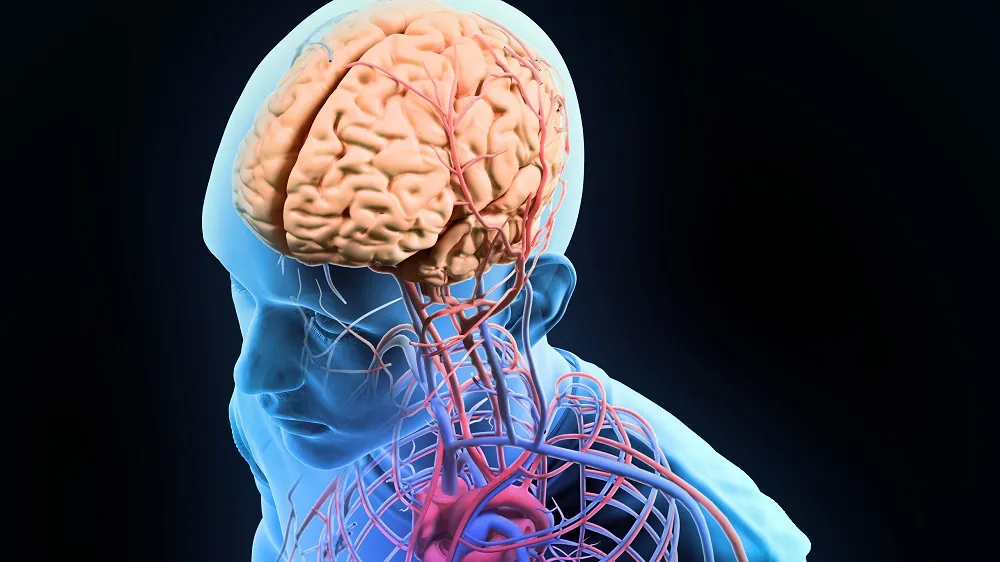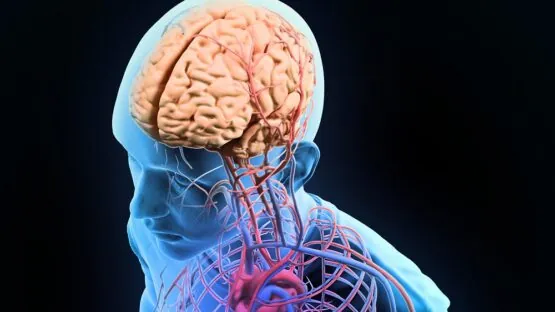Research published in JAMA Geriatrics analyzed the link between blood pressure, hypertension, and the risk of dementia [1].
Inconsistent research
Published research is inconsistent regarding the link between hypertension and dementia. Some studies suggest an association between midlife hypertension and increased dementia risk. Other studies have observed no association between hypertension and dementia, a lower risk of dementia, or a U-shaped blood pressure and dementia association [2,3,4,5].
For people who are at least 60 years old, studies generally conclude that higher blood pressure is associated with a decreased risk of dementia. However, in clinical trials of antihypertensives, the best levels of cognition are associated with lower blood pressure [6,7,8].
However, clinical trials have their own caveats. Participants in those trials must meet strict inclusion criteria, which often exclude people with comorbidities or elderly people. These trials are often run in developed countries, which, even more, restricts their generalizability.
To help remedy some of those limitations, this study’s authors performed a meta-analysis of multiple longitudinal, population-based studies. This allowed them to analyze the data of almost 35,000 participants.
The analyzed cohort was characterized by great geographical diversity as it included people from 16 countries on six continents. The mean age of participants was 72.5 years, with a mean follow-up time of 4.3 years.
Risk of dementia for patients with hypertension
These researchers observed an increase in dementia risk for people with untreated hypertension, at age 70 and above, compared to people with treated hypertension. This is in agreement with some clinical trials that found an association between the treatment of hypertension and decreased dementia risk [9].
Additionally, the authors reported that people with treated hypertension and healthy people didn’t differ in dementia risk. This observation agrees with a study that compared people who were at least 65 years old and had untreated and treated hypertension. This study found 21% lower dementia risk in the treated group [10].
However, there are discrepancies regarding the role of sex and race in the risk of dementia among people with treated hypertension. In this study, researchers did not observe the influence of sex or race on dementia risk in patients with treated hypertension. While there are studies that agree with this finding, other studies observed that people of African descent and males have an increased risk of dementia in hypertension [10].
These researchers point out that such differences might be explained by another study that suggests that cardiovascular differences stem from environmental and socioeconomic factors instead of racial or genetic differences [11]. However, more research is needed to fully understand these connections.
Blood pressure measurements and dementia risk
These researchers didn’t observe an association between baseline blood pressure measurements and dementia. They note that there is no consensus in the field regarding the relationship between blood pressure and dementia risk, as there are multiple studies that report an increased risk, a decreased risk, or no link at all.
Researchers believe that the differences may stem from the high variability of blood pressure as a biomarker [12,13]. The variability can be due to such things as biological processes that occur as we age, such as arteriosclerosis, or the ‘white coat effect’, which causes people to have higher readings around doctors than at home.
Such observation emphasizes that a single measurement taken at baseline is not a good indicator of dementia risk, and more than one measurement needs to be taken for better assessments.
Additionally, the life history of blood pressure in a particular patient influences the impact that it has on that person during later life [14]. The authors mention that reverse causality can also influence the results, as changes to the body related to dementia may alter blood pressure [15].
Limitations
Analyzing several studies done by different groups in different parts of the world comes with some limitations, such as different study designs and variability in hypertension diagnoses. The follow-up period also varied among the studies.
Since dementia develops for many years, the authors performed an additional analysis that included only longitudinal studies; more specifically, they analyzed only the studies that included a follow-up period of 5 years or longer. When only such studies were considered, previously observed associations were no longer statistically significant.
Additionally, since these researchers didn’t have access to certain types of data, such as socioeconomic status, management of other health conditions, and type of medication used by the participants, this limited their analysis, and some factors that might be important for dementia risk might have been missed.
Literature
[1] Lennon, M. J., Lam, B. C. P., Lipnicki, D. M., Crawford, J. D., Peters, R., Schutte, A. E., Brodaty, H., Thalamuthu, A., Rydberg-Sterner, T., Najar, J., Skoog, I., Riedel-Heller, S. G., Röhr, S., Pabst, A., Lobo, A., De-la-Cámara, C., Lobo, E., Bello, T., Gureje, O., Ojagbemi, A., … Sachdev, P. S. S. (2023). Use of Antihypertensives, Blood Pressure, and Estimated Risk of Dementia in Late Life: An Individual Participant Data Meta-Analysis. JAMA network open, 6(9), e2333353.
[2] Livingston, G., Huntley, J., Sommerlad, A., Ames, D., Ballard, C., Banerjee, S., Brayne, C., Burns, A., Cohen-Mansfield, J., Cooper, C., Costafreda, S. G., Dias, A., Fox, N., Gitlin, L. N., Howard, R., Kales, H. C., Kivimäki, M., Larson, E. B., Ogunniyi, A., Orgeta, V., … Mukadam, N. (2020). Dementia prevention, intervention, and care: 2020 report of the Lancet Commission. Lancet (London, England), 396(10248), 413–446.
[3] Forte, G., De Pascalis, V., Favieri, F., & Casagrande, M. (2019). Effects of Blood Pressure on Cognitive Performance: A Systematic Review. Journal of clinical medicine, 9(1), 34.
[4] Blanken, A. E., & Nation, D. A. (2020). Does Gender Influence the Relationship Between High Blood Pressure and Dementia? Highlighting Areas for Further Investigation. Journal of Alzheimer’s disease : JAD, 78(1), 23–48.
[5] Rajan, K. B., Barnes, L. L., Wilson, R. S., Weuve, J., McAninch, E. A., & Evans, D. A. (2018). Blood pressure and risk of incident Alzheimer’s disease dementia by antihypertensive medications and APOE e4 allele. Annals of neurology, 83(5), 935–944.
[6] Ruitenberg, A., Skoog, I., Ott, A., Aevarsson, O., Witteman, J. C., Lernfelt, B., van Harskamp, F., Hofman, A., & Breteler, M. M. (2001). Blood pressure and risk of dementia: results from the Rotterdam study and the Gothenburg H-70 Study. Dementia and geriatric cognitive disorders, 12(1), 33–39.
[7] Skoog, I., Lernfelt, B., Landahl, S., Palmertz, B., Andreasson, L. A., Nilsson, L., Persson, G., Odén, A., & Svanborg, A. (1996). 15-year longitudinal study of blood pressure and dementia. Lancet (London, England), 347(9009), 1141–1145.
[8] Joas, E., Bäckman, K., Gustafson, D., Ostling, S., Waern, M., Guo, X., & Skoog, I. (2012). Blood pressure trajectories from midlife to late life in relation to dementia in women followed for 37 years. Hypertension (Dallas, Tex. : 1979), 59(4), 796–801.
[9] Hughes, D., Judge, C., Murphy, R., Loughlin, E., Costello, M., Whiteley, W., Bosch, J., O’Donnell, M. J., & Canavan, M. (2020). Association of Blood Pressure Lowering With Incident Dementia or Cognitive Impairment: A Systematic Review and Meta-analysis. JAMA, 323(19), 1934–1944.
[10] Ou, Y. N., Tan, C. C., Shen, X. N., Xu, W., Hou, X. H., Dong, Q., Tan, L., & Yu, J. T. (2020). Blood Pressure and Risks of Cognitive Impairment and Dementia: A Systematic Review and Meta-Analysis of 209 Prospective Studies. Hypertension (Dallas, Tex. : 1979), 76(1), 217–225.
[11] Shah, N. S., Ning, H., Petito, L. C., Kershaw, K. N., Bancks, M. P., Reis, J. P., Rana, J. S., Sidney, S., Jacobs, D. R., Jr, Kiefe, C. I., Carnethon, M. R., Lloyd-Jones, D. M., Allen, N. B., & Khan, S. S. (2022). Associations of Clinical and Social Risk Factors With Racial Differences in Premature Cardiovascular Disease. Circulation, 146(3), 201–210.
[12] Schutte, A. E., Kollias, A., & Stergiou, G. S. (2022). Blood pressure and its variability: classic and novel measurement techniques. Nature reviews. Cardiology, 19(10), 643–654.
[13] Wang, N., Harris, K., Woodward, M., Harrap, S., Mancia, G., Poulter, N., Chalmers, J., Rodgers, A., & PROGRESS and ADVANCE collaborators (2023). Clinical Utility of Short-Term Blood Pressure Measures to Inform Long-Term Blood Pressure Management. Hypertension (Dallas, Tex. : 1979), 80(3), 608–617. https://doi.org/10.1161/HYPERTENSIONAHA.122.20458
[14] Walker, K. A., Sharrett, A. R., Wu, A., Schneider, A. L. C., Albert, M., Lutsey, P. L., Bandeen-Roche, K., Coresh, J., Gross, A. L., Windham, B. G., Knopman, D. S., Power, M. C., Rawlings, A. M., Mosley, T. H., & Gottesman, R. F. (2019). Association of Midlife to Late-Life Blood Pressure Patterns With Incident Dementia. JAMA, 322(6), 535–545.
[15] Peters, R., Peters, J., Booth, A., & Anstey, K. J. (2020). Trajectory of blood pressure, body mass index, cholesterol and incident dementia: systematic review. The British journal of psychiatry : the journal of mental science, 216(1), 16–28.




